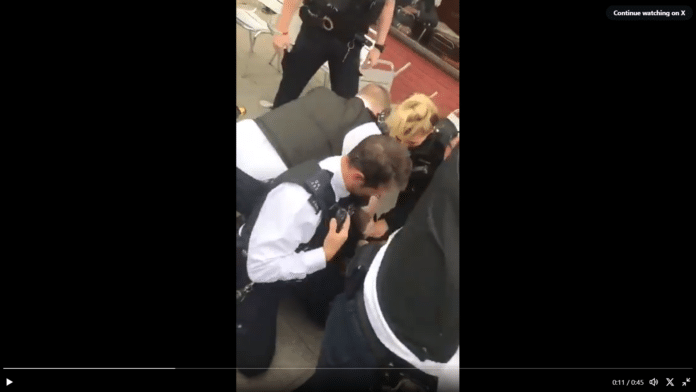Racism within the United Kingdom’s police forces is a complex and pervasive issue that has sparked widespread concern and scrutiny. Despite progress in addressing diversity and inclusion, instances of racial bias, discrimination, and excessive use of force persist, revealing the existence of systemic challenges within the law enforcement system. This article aims to explore the roots and manifestations of racism within UK police forces, examining the impact on communities, trust in policing, and efforts towards reform.
Historical Context:
To comprehend the current state of racism within UK police forces, it is essential to consider historical factors that have shaped the relationship between law enforcement and minority communities. The Windrush scandal, discriminatory policing during the Brixton riots in the 1980s, and the controversial use of “stop and search” powers disproportionately affecting ethnic minorities are just a few examples that underscore a troubling pattern of racial inequality.
Structural Racism:
One of the primary reasons behind racism within UK police forces is the existence of structural racism embedded in the institutions themselves. Recruitment processes, promotion criteria, and organisational culture often reflect biased perspectives, contributing to the underrepresentation of minority officers in higher ranks. This lack of diversity at the top perpetuates a cycle where systemic issues go unaddressed and reforms are slow to materialise.
Discriminatory Practices:
The controversial practice of “stop and search” has been a focal point of criticism, as statistics consistently reveal a disproportionate targeting of black and ethnic minority individuals. Despite efforts to address this disparity, concerns about racial profiling persist, leading to a strained relationship between law enforcement and the communities they serve. The perception of discriminatory practices erodes trust and cooperation, hindering effective policing.
A small number of examples:
- The Death of Mark Duggan (2011): Mark Duggan, a black man, was shot and killed by police in Tottenham, London, in August 2011. His death led to widespread protests and riots, highlighting concerns about police use of force, racial profiling, and systemic issues.
- The Windrush Scandal (2018): The Windrush scandal exposed the mistreatment of the “Windrush generation,” a group of Commonwealth citizens who faced deportation threats and other hardships due to changes in immigration laws. The scandal raised questions about racial profiling and the lack of adequate safeguards.
- Sarah Reed Case (2016): The death of Sarah Reed, a black woman, in police custody raised concerns about the treatment of individuals with mental health issues within the criminal justice system. Her family and activists argued that her death was a result of systemic failures and racial bias.
- Death of Rashan Charles (2017): Rashan Charles, a black man, died after a struggle with police in Hackney, London, in July 2017. His death sparked protests and renewed discussions about police conduct, the use of force, and the treatment of black individuals in police custody.
Use of Force Disparities:
Instances of excessive use of force, particularly against black and ethnic minority individuals, have raised serious questions about police conduct. High-profile cases like the death of Mark Duggan and the subsequent riots in 2011 have highlighted the need for a comprehensive examination of police practices, accountability, and the consequences of racial bias. Body-worn cameras and increased scrutiny of the use of force incidents are steps towards accountability, but challenges remain in ensuring unbiased investigations and fair outcomes.
This is what happened in #Harlesden today. This is nothing more than attack on a black man by a mob of @metpoliceuk. He was not resisting arrest! We need answers, accountability and #justice! ,@maxinejames @DawnButlerBrent @HackneyAbbott @ourBAMElab @ManleyNanda @ClaudiaWebbe pic.twitter.com/FkoAdL20Ly
— Streatham Ethnic Minorities Forum (@StreathamForum) October 4, 2018
'The history of this country is built on racism' says Professor Kehinde Andrews attacking the UK's past actions.
— Good Morning Britain (@GMB) October 9, 2018
He says the UK has ruined the world and that it is a racist country, built on racism. He went on to call Winston Churchill one of the roots of the problem. pic.twitter.com/5KPunw8WdG
Community Impact:
The negative repercussions of racism within UK police forces extend beyond individual interactions to impact entire communities. Mistrust and fear of law enforcement can hinder crime reporting, witness cooperation, and community engagement. This strained relationship jeopardises the effectiveness of policing efforts and undermines the goal of creating safe and secure environments for all citizens.
Reform Efforts:
Acknowledging the existence of racism within UK police forces, there have been various initiatives and reforms aimed at addressing systemic issues. Diversity and inclusion programs, cultural competency training, and increased transparency are steps in the right direction. However, the effectiveness of these measures is contingent on their implementation, continuous evaluation, and a commitment to dismantling ingrained biases within the system.
Racism within UK police forces is a deeply rooted and multifaceted issue that demands urgent attention and comprehensive reform. By acknowledging historical injustices, addressing systemic challenges, and fostering a culture of accountability and transparency, the UK can work towards rebuilding trust between law enforcement and the diverse communities they serve. Only through a concerted effort to eliminate racial bias at all levels of policing can a truly equitable and just system be achieved.
Solution: STOP RACISM NOW
Join us in helping to bring reality and decency back by SUBSCRIBING to our Youtube channel: https://www.youtube.com/channel/UCQ1Ll1ylCg8U19AhNl-NoTg SUPPORTING US where you can: Award Winning Independent Citizen Media Needs Your Help. PLEASE SUPPORT US FOR JUST £2 A MONTH https://dorseteye.com/donate/







